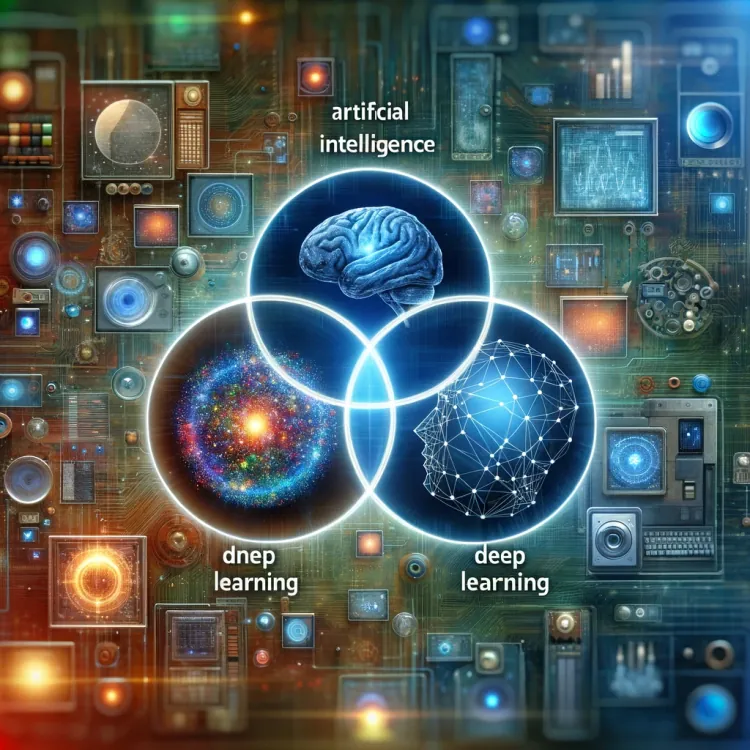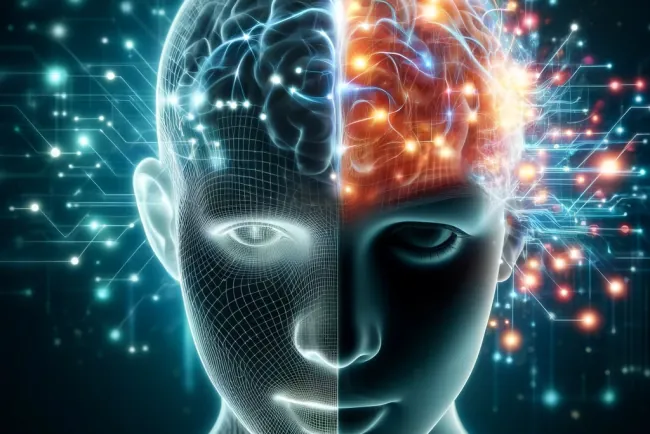Deep Learning vs. Machine Learning most easy way to understand
know the differences between deep learning and machine learning, and how both relate to AI in this comprehensive , most easy way to understand

Introduction
In the ever-evolving fields of technology and data science, terms like artificial intelligence (AI), machine learning (ML), and deep learning (DL) are frequently heard. Though often used interchangeably, these concepts each hold unique meanings and applications. This guide delves into the nuances of AI, ML, and DL, outlining their relationships, differences, and how beginners can start learning about these transformative technologies.

Understanding the Basics
- Artificial Intelligence (AI): AI encompasses technologies that enable machines to mimic human intelligence and perform tasks that typically require human cognition.
- Machine Learning (ML): ML, a subset of AI, involves algorithms that allow computers to learn from and make decisions based on data.
- Deep Learning (DL): As a subset of ML, DL uses layered neural networks to analyze various factors of data, mimicking human brain functions.
Deep Learning vs. Machine Learning: Core Differences
- Data Requirements:
- ML can often operate on smaller datasets.
- DL requires vast amounts of data to function effectively.
- Processing Power:
- ML algorithms can run on general CPUs.
- DL algorithms generally need more robust GPUs for efficient processing.
- Human Intervention:
- ML might require more human guidance for optimization.
- DL systems learn autonomously from data, minimizing the need for human interference.
- Complexity and Accuracy:
- ML handles simpler, linear correlations.
- DL excels in making complex, non-linear correlations, leading to higher accuracy in tasks like image and speech recognition.

Practical Applications
- Machine Learning: From spam filtering in emails to recommendation engines on streaming services, ML integrates into daily technology.
- Deep Learning: DL powers advanced applications such as autonomous vehicles, sophisticated voice and facial recognition systems.
How to Start Learning
- Courses for Beginners:
- AI for Everyone by DeepLearning.AI on Coursera: A beginner-friendly course that introduces AI and its societal impacts.
- Generative AI: Prompt Engineering Basics by IBM on Coursera: Focuses on building skills in generating AI content through effective prompt engineering.
- Further Learning: Consider enrolling in the Machine Learning Specialization by Stanford and DeepLearning.AI to deepen your understanding and skills.
Deep Learning and Machine Learning in Popular Culture
AI, ML, and DL are not just academic terms but also feature prominently in pop culture, influencing how the public perceives and interacts with technology. From classic films to modern narratives, these technologies inspire both awe and ethical debates.
Conclusion
Understanding the distinctions between AI, ML, and DL is crucial for anyone interested in the fields of technology and data science. While they are related, recognizing their specific applications and limitations is key to leveraging their capabilities effectively. For those eager to dive deeper, numerous educational resources, including online courses and specializations, provide valuable starting points.
FAQs
- What is the best way to start learning about artificial intelligence?
- Starting with foundational courses like AI for Everyone can help build a basic understanding before moving into more specialized areas.
- How do deep learning and machine learning differ in terms of data needs?
- Machine learning can often make do with smaller datasets, whereas deep learning requires large volumes of data to achieve high accuracy.
- Can I study machine learning without a strong mathematical background?
- Yes, introductory courses are designed to help beginners grasp the basics without advanced mathematics, though further study might require strengthening mathematical skills.
For further exploration and resources, consider enrolling in structured courses and following recent developments in AI and ML technologies.
What's Your Reaction?





















